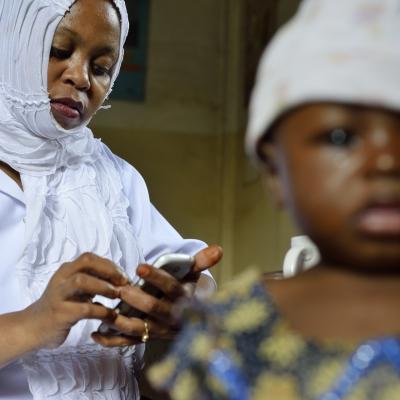Better health is central to human happiness and well-being. It also makes an important contribution to economic progress, as healthy populations live longer, are more productive, and save more.
WHO defines eHealth is as the use of ICT to improve patient outcomes by increasing access to care and medical information. Digitalisation is today considered as an essential contributor to better heath and healthcare provision and management. Not only it contributes to all pillars of the health system: better quality of services, better finance management, better management of human resources, qualitative and timely health information, evidence-based decision making, but it has moreover the potential of empowering the populations and giving a voice to the communities. eHealth has a transformative potential at national, health facility, health professional, community and patient level.
While eHealth is a relatively well-known concept for developed settings, resistance to eHealth and “going digital” in more fragile and poverty settings is currently observed. A number of technical, financial, political and socioeconomic barriers are limiting the adoption of eHealth practices and technologies, such as the poor data quality or lack of access to data, the investments needed and inadequate or limited skills of health workers.
Through these selected projects, Wehubit supports the adoption and scaling-up of eHealth practices and technologies that advance universal health coverage, strengthen national health systems and health workers’ skills and improve access to quality essential health-care services for all.
